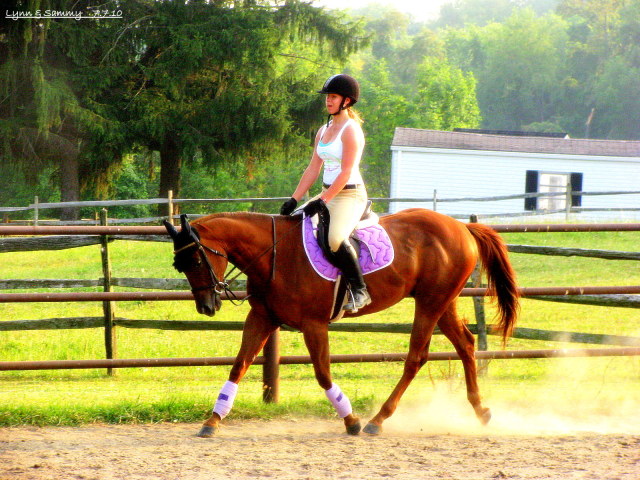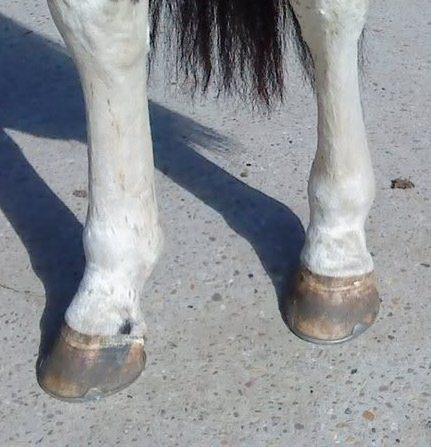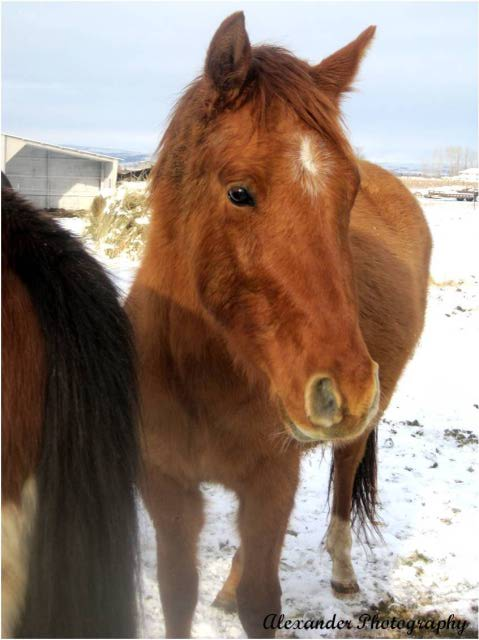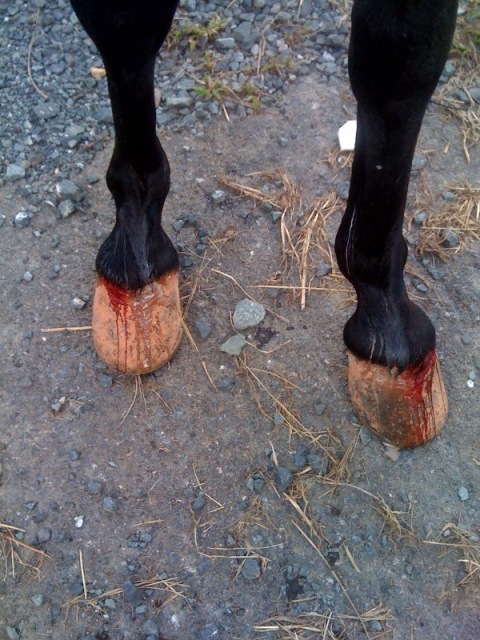QuestionHi, I am looking for some advice on training my new 7 month old horse. Her dad was a Thoroughbred and her mom is part Arab. She is almost the same size as her mom already and I think she is going to be a pretty big girl. I have been working with her on leading mostly and also grooming. She leads pretty well but doesn't like coming in from the field without her mom. She is beginning to stand still for grooming and will reluctantly let you pick up her feet. She had them trimmed the other day and only put up a fight for her back left foot. She is pretty well behaved and doesn't really mind anything. Not too much spooks her but she is very curious. She is learning very fast and I would just like some advice as to where to go from here. At what age would it be appropriate to begin introducing her to cinch pressure and a bit. At what age should I began saddling and even riding? I have never broken or trained a horse before so any advice you can give me will be a big help.
AnswerHi Kaylee. Your question is good, but the answer would take books and years to answer. Not sure what your horse experience is or how long have you had mom, how often do you ride and horse handling experience. I will try and give you some tips, but I can't explain everything. All young horses don't like to leave their mom so that is normal. Some people move the baby away from mom at 3 to 6 months. I like leaving them together and let mom take care of weaning. Depending on your situation you can do what is best. The first thing I would suggest is read, read, read.. There are some good books out there and the more you read the more you will start thinking like a horse. The better you think like a horse the better your filly will be. Horses love it when people think like them, after all we are supposed to be the smarter ones, yet we always want the horse to think like us.
When horses are young it is the best time to expose them. You can really make a big impact on future training by exposing the little one to everything. I like soft ropes. I wrap around the ears, about the head, feet, body (cinch area) back legs, etc... I want the horse to know that no matter what touches her, when she is with me, she is safe. Don't go too fast and scare her, but rub her and touch her on every inch of her body. Try and find her special spots she likes, bond with her by gaining her trust. Once you can do anything with your hands anywhere on her body, do it all over with a rope, and then with a whip, then with a stick, then with a plastic bag, a paper bag and so on. The more things you touch her with the better. Each and every day she will trust you more and more.
The key is to get your horse to look forward to seeing you and being with you. I see too many people take a horse out, work it, round pen it, saddle it, ride it and stick it back in a stall. And they wonder why their horse won't come to them and is always fighting with them. You said she was curious, don't lose that. Too many people beat the curiosity out of a horse and want a robot horse, one that respects their space, stands still, never moves unless told.. not my idea of a partnership or friendship more like an employee and employer, that is not fun for either of them. Laugh, enjoy and encourage her playfulness and curiosity. She is exploring and learning, the more she does it the better she will be later.
As for the bit and saddle intro, I never use a bit. If I get a problem horse the first thing I do is get rid of the bit. A good horse will work and ride in a halter. I use a bosal (also called a hackamore), this fits around the nose and is much less harsh then metal in the mouth. A bit, if you decide to use it, should only be introduced later in training. Any good trainer will start a horse in a halter and rope. My first rides on young horses are always with a rope halter and rope. The fastest way to ruin a horse is put a bit in and start pulling on both reins. By starting with a halter and rope you teach the horse to give to pressure and since you have been leading her around, she understands it, trust it and knows it will not hurt her.
For the saddle, I would start now with blankets, remember earlier about touching her everywhere, after you have her trust, a blanket will be no different that a rope, a stick, feed bag etc.. I would not saddle before two. And then only for a short period. When you are sacking her out, lean on her, let her support your weight, later you get her used to you sitting on her, sliding on and off her, etc..
Western Horseman has some good books and they would help you understand and think like a horse. Don't be quite or sneaking around the horse. Drop things, drag things, knock over things, and then even if the horse reacts, keep doing what you are doing and be clam as if you wanted it to happen. Your horse will think when you are around things always happen and it is no big deal. That way when something happens that you did not plan, the horse never knows the difference and will not react.
Feel free to ask other specific questions as they come up. Taking a young horse and watching it grow and learn is one of the greatest experiences around. Don't get in a hurry and enjoy the little victories.
In the old days horses were not started until they were in their 4's or 5's, however they were handled a lot. Good horseman would teach everything on the ground so when they got in the saddle it was no surprise. Old rough cowboys would just man handle and ride the bucks out and wear the horse down. A horse that is man handled, beat or trained with fear and pain will never be a trustworthy horse.
Go to any ranches in your area and watch people handle horses. You will learn the right way and wrong way to do things.
Horse learn on the release of pressure. This takes time to learn and understand. When ever you stop doing something the horse thinks whatever he was doing when you stopped is the right answer. That is why you never stop during bad behavior. I see a lot of people tie a horse and when it starts pulling or freaking out, they rush over and untie it.. bad! Only reward (stop pressure) when you get the right response.
Take care, be safe and have fun.

 behavior problems
Question
troting sammy(:(:
i just bought a 5y/o chestnu
behavior problems
Question
troting sammy(:(:
i just bought a 5y/o chestnu
 legs filled up
Question
image 1 image 2
hello Brittney. m
legs filled up
Question
image 1 image 2
hello Brittney. m
 Colt Refuses to be Caught
Question
Spartan
Hi,
I have a 2 year old colt n
Colt Refuses to be Caught
Question
Spartan
Hi,
I have a 2 year old colt n
 trotting on the road
Question
road
hello. i am rohit from india. i ha
trotting on the road
Question
road
hello. i am rohit from india. i ha
 bleeding
Questionbleeding
QUESTION: hi D! I have attached
bleeding
Questionbleeding
QUESTION: hi D! I have attached